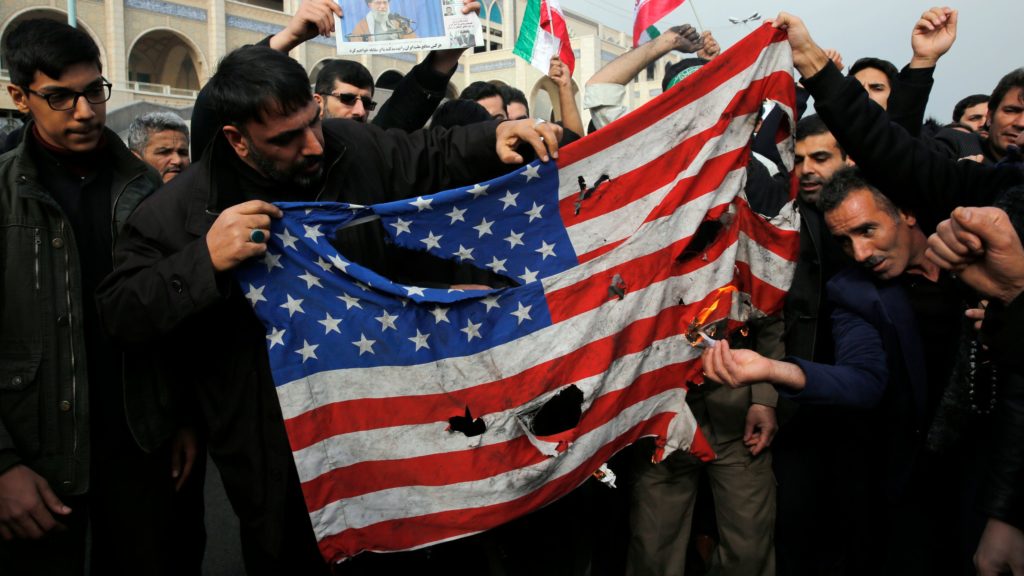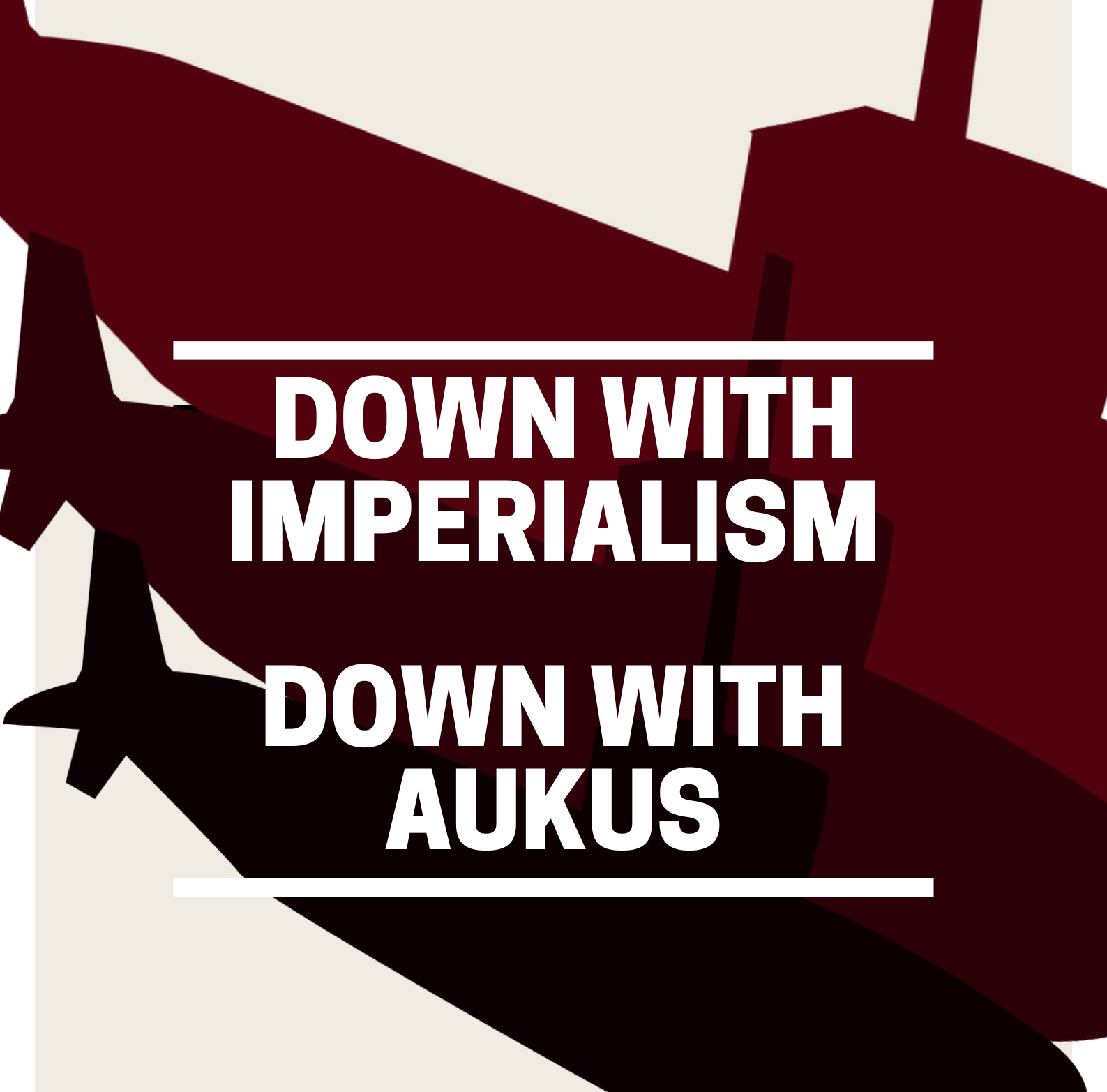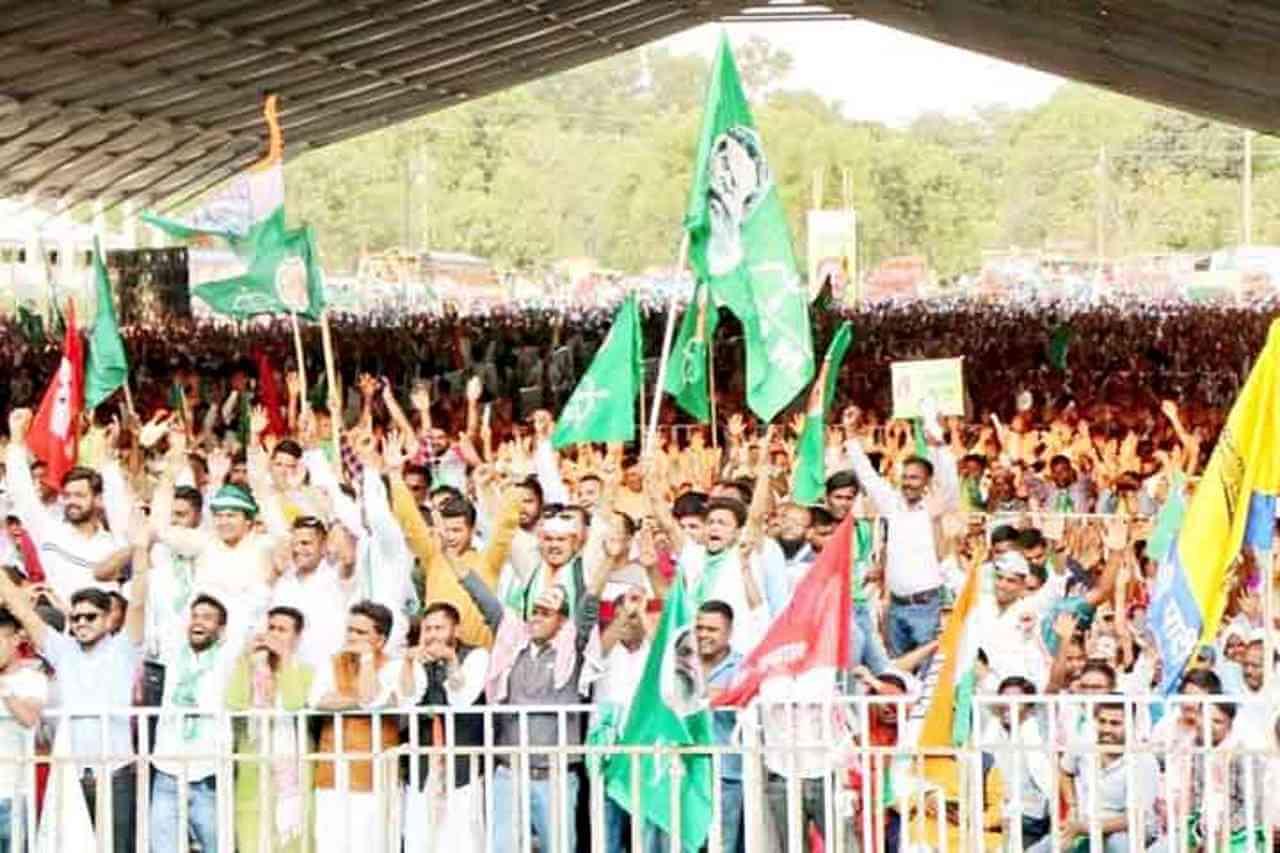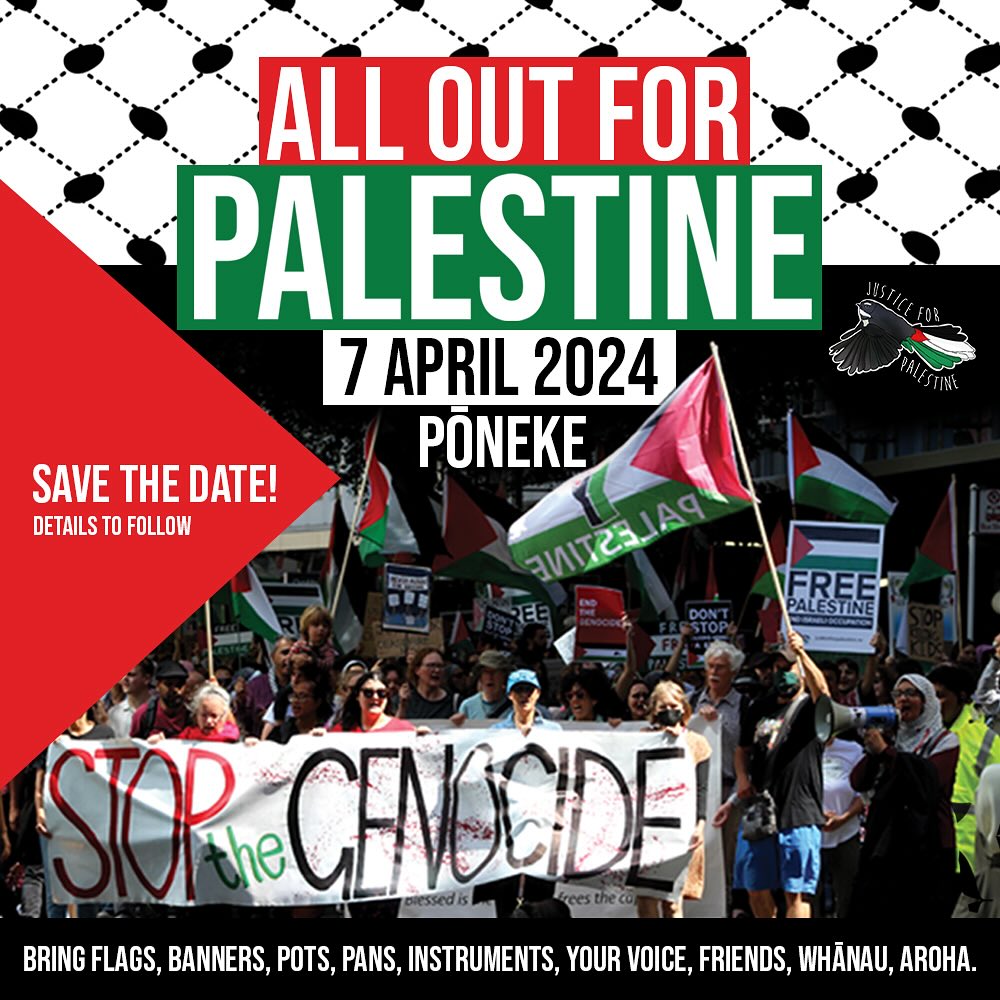For a while in January it looked as if the United States was about to plunge the Middle East into another dangerous round of war. First there was the assassination of General Qassem Soleimani, an act of war, and clear violation of US and international law. The contempt the US ruling class – Democratic and Republican – shows for ordinary people’s lives in the Middle East and the basic sovereignty of other nations was on full display. Trump tweeted, without comment, a picture of the US flag as the assassination was happening, and later threatened to bomb sites of cultural and historical significance in Iran as revenge for any Iranian response. Baghdad Airport was attacked by US missiles. This came after days of protests outside the US Embassy in Iraq, protests that were themselves the response to other US airstrikes. Although it only occasionally breaks through into the headlines, US imperialism has been provoking a cycle of escalating violence throughout last year.
The Iranian response – largely symbolic counter-bombings of empty buildings and cautious diplomacy – pulled the situation back from the kind of escalation upon growing instability that can spark a full war. But the bombing and counter-bombing show just how dangerous the region remains, and just how destabilising and bloody the US Empire’s reach. Our first demand needs to be: US out of the Middle East!
US Weakness
Trump’s style has its own brand of wackiness and bluster but, beneath the surface, he is approaching the same problem that a generation’s worth of US rulers have faced. Iran threatens the US’s imperialist interests in the region, and is asserting itself as a growing power. George Bush tried to contain and threaten Iran through 2000 – 2008, but the disaster of the US invasion of Iraq – and the scale of resistance its occupying armies faced – only strengthened Iranian influence and power. Obama pursued a similar strategy but by way of negotiations rather than threats. This was partly to do with different styles, but reflected also changed realities: the US lost in Iraq, and, weaker through 2008 – 2016, its rulers wanted to turn their focus from the traps of the Middle East to a growing rival in China. Trump, for all of his incoherence and crudity on Twitter, is much closer to the rest of the US establishment when it comes to foreign policy than his presentation suggests. The pressure he is bringing to bear now is part of a hostility towards Iran stretching all the way back to 1979, when a pro-US ruler was toppled by revolution and the current regime established itself.
The brutality and cynicism of US politics is something to behold. Trump was still facing impeachment in January, and many commentators suggested connections between the post-Christmas round of bombings and his desire to use an imperialist strong-man image as a wedge to divide Democratic rivals. That seems to have worked. But, from a longer-term view, US lashing out needs to be seen as a symptom of a weakening power, not a strong one. As Omar Hassan puts it:
“In different ways, both Obama’s nuclear deal and Trump’s program of “maximum pressure” reflect the need to deal with the new geopolitical situation produced by a shifting balance of power in the Middle East. US dominance has substantially declined following its disastrous defeats in Iraq and Afghanistan. A range of regional powers have tried to make the most of this partial vacuum, including Turkey, Saudi Arabia, Russia, Qatar and the United Arab Emirates. Iran has so far been the most successful, having gained serious influence in Lebanon, Syria, Yemen, Libya, Palestine and more. Recent war games in the Persian Gulf involving Russia, Iran and China highlight the growing confidence of this anti-US grouping.”
Trump’s presidency – erratic, chaotic, violent – is both a reflection of and a response to this new reality. He seeks out unlikely deals on the one hand – as with the thaw towards North Korea early in his presidency – and lashes out with the other. Neither approach begins with confidence.
Looking to the Masses
Assassinating General Soleimani was an outrage. Just imagine for a moment if the Iranian regime had killed Gina Haspel, director of the CIA, and then demanded that the US doing nothing in response. But our anger at US hypocrisy and warmongering does not mean Soleimani should be mourned. He was a key figure in the Iranian state’s programme of counter-revolution across the region, organising, strategising and backing the suppression of popular uprisings in Syria and Iraq, as well as in the crushing of popular and democratic protest within Iran. Since November 15 2019 there have been protests in over 100 centres in Iran taking up issues from the cost of living to the lack of freedom, and hundreds have been killed and thousands injured or imprisoned for taking part in these protests. Soleimani was central to this machine of oppression. If Iranian state power is growing across the Middle East at the expense of the American, this is no progressive development for workers and the oppressed. It is, instead, a growing inter-imperialist rivalry, with the Iranian capitalist class and their politicians wanting to extend their interest and control. Ordinary people will pay the price – from the experience of sanctions to the misery of war for these rivalries.
This can all feel extremely frightening and depressing, and with good reason. The scale of violence unleashed in the Middle East to protect the interests of the rich and powerful beggars belief. From the 2003 invasion of Iraq to the brutal suppression of revolutions in Egypt and Syria through the 2010s to the latest round of violence in Iran and Iraq, the ferocity of imperialism is staggering.
But there is a cause for hope, and it is a hope that destabilises both the US and the Iranian regime’s plans for regional domination. That hope is the self-activity of the masses, the only hope, for Marxists, for peace, justice, and self-determination. And last year saw the return of the self-activity in movements that have not been seen since the inspiring days of the so-called Arab Spring in 2011. Mass protests shook Lebanon, with almost two million people involved in October. What started as demonstrations against taxes on social media apps turned into a challenge to the country’s sectarian organisation. Similarly in Iraq mass protests have challenged the sectarian order and, significantly, Iran’s influence in the country. Protests have targeted both the US and the Iranian presence, rejecting the divided and impoverished misery that is normal life almost two decades after the US invasion. Mass demonstrations in Iran itself bring democratic energy, as does the return – against heroic odds and state violence – of protest in Egypt.
These movements from below show a way forward for the region, one rejecting imperialist division from above. While our focus should be on condemning the US’s actions, and organising against NZ state support for US imperialism, we must also solidarise with the popular revolts and look to their potential for hope and transformation.
New Zealand’s Role
New Zealand is playing a role, no matter how small, in supporting US imperialism. It’s a good thing that activists came together to join the international day of action against was in Iran in January, raising the issue of New Zealand troops in Iraq and demanding their withdrawal. The troops are supposed to leave in June, but they should never have been there in the first place. Foreign forces in Iraq were, and remain, part of an army of occupation.
It is good that the Greens have called for the troops to be withdrawn, and Golriz Ghahraman has spoken out against war. But her statements show the limits of Green politics too. By calling for New Zealand to “call out our allies”, Ghahraman accepts the limits put on politics by the norms of the capitalist state: that New Zealand allies itself with the US, and that this “alliance”, in the interests of capital, can be reformed or somehow made progressive.
As socialists, we start from a completely different perspective. We look to the self-activity of workers, regardless of nationality, against the interests of capital and its states. That means opposing US war, certainly, but it also means looking to the causes of those wars. And that means breaking with the US “ally” for freedom.









